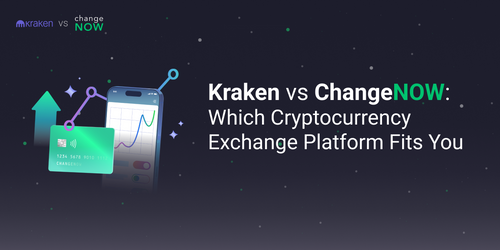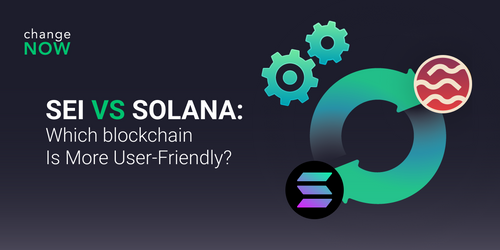Weekly Wrap: PayPal Strikes MetaMask Partnership
Bahamas Authorities Arrest FTX Founder Sam Bankman-Fried

On Dec 11, the Royal Bahamas Police took Sam Bankman-Fried, founder and ex-CEO of collapsed crypto exchange FTX, into custody. Damian Williams, US attorney for the Southern District of New York, announced the arrest in a Twitter post. Williams noted that the arrest reportedly took place at the request of the U.S. government, based on a sealed indictment filed by the SDNY.
"We expect to move to unseal the indictment in the morning and will have more to say at that time," - Damian Williams
Bahamas Attorney General Ryan Pinder stated that the U.S. was primed to request Bankman-Fried's extradition. According to Pinder's statement, the Bahamas is set to comply. Prime Minister of the Bahamas Philip Davis also spoke on the situation. In his statement, Davis noted that both regions involved in SBF's arrest had a common interest. Both US and Bahamian authorities aimed to see those with ties to FTX take responsibility for betraying public trust and breaking the law.
"The Bahamas will continue its own regulatory and criminal investigations into the collapse of FTX with the continued cooperation of its law enforcement and regulatory partners in the United States and elsewhere." - Philip Davis, Prime Minister of the Bahamas
PayPal and ConsenSys Partner for Seamless Crypto Transactions
Payments network PayPal has entered into a collaboration with blockchain software firm ConsenSys. News of the partnership emerged via a Dec 14 release which shared further details surrounding the move.
Per the release, ConsenSys' MetaMask wallet will now support payments giant PayPal's buy, sell and hold crypto offering. Indeed, the collaboration should see users easily purchase and transfer ETH from PayPal to MetaMask. All they have to do is log into their MetaMask mobile app, which will redirect them to their PayPal accounts to process transactions. For users new to swapping crypto in MetaMask, check out our complete guide for step-by-step instructions.
MetaMask product manager Lorenzo Santos explained the partnership would first leverage on U.S. customers:
"This integration with PayPal will allow our U.S. users to not just buy crypto seamlessly through MetaMask, but also to easily explore the Web3 ecosystem."
ConsenSys updated users in a blog post where they revealed that the new functionality would be open to a select group. Indeed, only eligible U.S. customers, except those based in Hawaii, have access to PayPal's services on MetaMask. The PayPal partnership is the software company's latest move to ease the purchase process for MetaMask users. In October, ConsenSys joined forces with fiscal firm Sardines to allow customers to make crypto purchases straight from their bank accounts.
Ethereum Merge Prompts Rise in BTC Hash Rate
In the months following Ethereum's widely-anticipated merge, an interesting development has surfaced on the mining scene. The Bitcoin hash rate, the computational power used to mine and process transactions, has significantly risen. BTC saw its hash rate hit an all-time high of 250 EH/s (quintillion hashes per second) in late October.
Blockchain analysis firm CoinMetrics' Dec 13 issue of its 'State of the Network' newsletter noted the growth of the BTC hash rate. The release also acknowledged the role of the merge in the noteworthy increase:
"It's hard to put an exact figure on the magnitude of this resource reallocation, but Bitcoin hash rate grew quickly from 220 EH/s to 250 EH/s shortly after the completion of The Merge in September."
The Ethereum Merge entailed the network's transition from Proof-of-Work to the Proof-of-Stake consensus mechanism. Indeed, transaction validation on Ethereum no longer calls for miners. Rather validators are randomly selected, with how many coins they have staked being part of the criteria.
Following the shift, former Ethereum miners have switched from Ethereum mining operations to Bitcoin mining. Hence, the influx of miners has seen the BTC hash rate surge in the past few months. The rise comes despite recent turbulence in the crypto space. Indeed, following the FTX crash and other incidents, the premier token has seen its value drop to record lows.
Bitcoin Usage in Nigeria May be Legalized Soon
According to recent reports by a local newspaper, Nigeria may be about to legalize the usage of Bitcoin and other cryptocurrencies. This claim was attributed to the chairman of the House of Representatives Committee on Capital Markets and Institutions of Nigeria. According to the report, Ibrahim Babangida, the chairman, explained that Nigeria needs an "efficient and vibrant capital market." Babaginda explained that this could only be possible if African nations keep up with evolving global practices.
The Bitcoin bill, if passed, would be an amendment to the 2007 Investments and Securities Act. It would allow Bitcoin to be recognized as a viable capital for investment in the country. Although Bitcoin was banned in Nigeria in 2021, it has managed to thrive actively, according to Chainalysis. In fact, that same year, it recorded the highest peer-to-peer Bitcoin trading volume in the world, as well as in West Africa. Indeed, the king of crypto has a large presence in the country. In August, Nigeria kickstarted its first construction of a 'Bitcoin village' while mining activities are beginning to amp up in some parts of the country.



